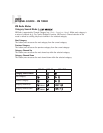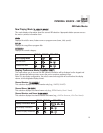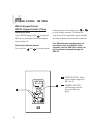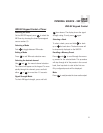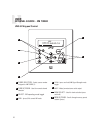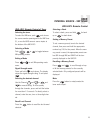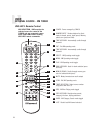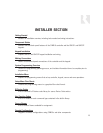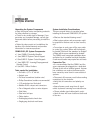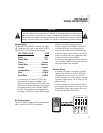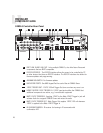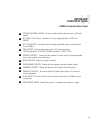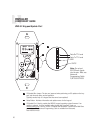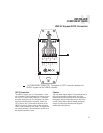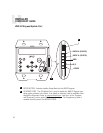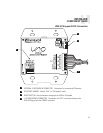
26
INSTALLER
GETTING STARTED
Unpacking the System Components
• Keep the original carton and packing materials
for future shipment or storage.
• Check for any visible signs of damage. If you
encounter any concealed damage, consult your
Russound dealer before proceeding to install the
unit.
• Retain the sales receipt as it establishes the
duration of the limited warranty and provides
information for insurance purposes.
CAM6.6X-S1/S2 System Components:
• 1 (one) CAM6.6 Controller/Amplifier
• 1 (one) UNO-S2 System Control Keypad
• 5 (five) UNO-S1 System Control Keypads
• 1 (one) UNO-LRC1 Learning/Preprogrammed
Remote Control
• 6 (six) 845.1 Micro Emitters
Tools needed for installation:
• Drill with a 1/2” x 6” drill bit
• Keyhole saw
• Flat head screwdriver (medium size)
• Phillips Screwdriver (cordless recommended)
• 110 punchdown tool (included)
• Modular RJ-45 crimper and connectors
• Pair of diagonal cutters or wire strippers
• Stud finder
• Steel wire fish tape
• Cable staples
• Double-gang electrical work box
• Single-gang electrical work boxes
System Installation Considerations
There are several factors to consider before
installing the Russound CAM6.6X-S1/S2 system:
• What are the intended listening zones?
• What system options and accessories might
be required for features such as local sources,
etc.?
• From where in each zone will the user prefer
to control the system? Where will the keypads
be located? Where will the speakers be located?
• Where will the source equipment be located?
The CAM6.6 must have proper ventilation above
and below for air circulation and heat dissipation.
A rack-mount location may require fans and vents.
Connection Tips
• It is recommended that the CAM6.6 and the
source equipment be plugged into a dedicated
20-amp circuit with an isolated ground. A power
line conditioner can reduce interference prob-
lems caused by noise found in some electrical
systems.
• Disconnect all live power cords before making
connections to the controller.
• Verify that all connections and polarity are
correct.
• Keep all power cords away from all signal
cables to prevent humming from induced noise.
• Choose reliable signal cables/patch cords.
• Label all wires with room location at both ends
of the wire.



